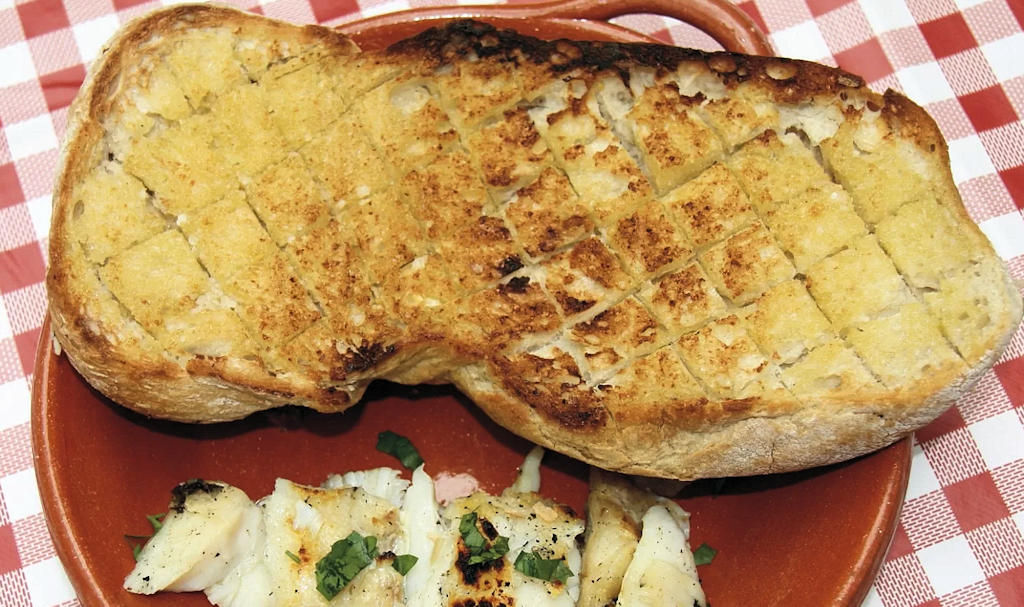This rustic dish also served as a means of preserving and repurposing the surplus bread produced in the region. Bread held a position of utmost importance in the Portuguese diet, particularly in rural areas where other ingredients were scarce or financially burdensome. The Ribatejo region, renowned for its premium wheat and bread production, boasted a variety of bread types, including broa (cornbread), pão caseiro (homemade bread), and pão de centeio (rye bread). However, due to its rapid staleness and hardening, ingenious culinary methods like Torricado were employed to breathe new life into the bread, infusing it with irresistible flavors.
Today, Torricado has found a place of honor in family gatherings, friendly get-togethers, and local festivities. Its allure lies in its ability to evoke nostalgia and tradition, transcending mere sustenance to become a comfort food that resonates deeply with the people of Ribatejo. Its versatility shines through as it effortlessly accompanies an array of grilled meats or fish, adapting to the season and individual preferences. During the summer months, when sardines are abundant and cooked over charcoal, Torricado takes on a special allure. And it doesn't stop there—Torricado can be complemented by an assortment of side dishes, including migas (bread crumbs cooked with garlic, olive oil, and herbs), batatas a murro (smashed roast potatoes), or salada de tomate (tomato salad).
Although the exact origin of Torricado remains shrouded in mystery, it likely harks back to medieval times or even earlier. The term "torricado" stems from the Portuguese verb "torrar", meaning to toast or roast, while the suffix "-icado" denotes a repeated or habitual action. Therefore, Torricado represents a culinary delight that has been toasted or roasted repeatedly, highlighting its historical prominence and enduring popularity.
Toasting bread over fire is an ancient practice found in diverse cultures and regions around the world. In Portugal, references to toasted bread can be traced as far back as the 13th century when King Afonso III granted privileges to bakers supplying bread to his court. Among these privileges was the exclusive access to firewood from royal forests for the purpose of toasting their bread. Toasted bread was considered a delicacy, a sign of wealth, and a marker of elevated social status.
Lisbon.vip Recommends
Today, Torricado can be savored in numerous restaurants and taverns throughout Ribatejo, as well as in other parts of Portugal where it has been embraced and adapted to local tastes. Moreover, it can be effortlessly prepared in the comfort of one's home, using either fresh or stale bread, a generous drizzle of olive oil, a dash of garlic, and a sprinkle of salt. Torricado's simplicity and undeniable satisfaction continue to reflect the history, culture, and cuisine of the Ribatejo region and its cherished inhabitants.
In conclusion, Torricado transcends its humble origins to become a culinary ambassador for the Ribatejo region. Its toasted bread, infused with olive oil, garlic, and salt, pays homage to the resourcefulness of rural laborers, while its versatility and comforting flavors connect generations and evoke a sense of place. As you delve into the warmth and crunch of Torricado, you embark on a flavorful journey through time, savoring a dish that not only nourishes the body but also nourishes the soul, reminding us of the timeless traditions and the enduring spirit of Ribatejo.



